Visa for a Canadian conference is something many people look into when planning their visit, and it often feels confusing at first. Different rules apply based on where a person lives and how they plan to travel. Many readers carry a clear question in mind, and that question is, what kind of visa do i need to attend a conference in Canada?
A visitor must apply for a Temporary Resident Visa if they are from a visa-required country, as it lets them attend meetings, events, and conferences in Canada. Travelers from visa-exempt countries need an eTA when they fly into Canada, and this online approval is quick and linked to their passport. Both options allow short stays for planned conference activities.
Would you like to learn more about the full process and understand every step clearly? This article explains each part in an easy way so you can prepare without stress. So stay tuned.
Is There a Conference Visa for Canada?
There is no special type of visa made only for conference attendance in Canada. When people travel for events, meetings, or upcoming conferences in Canada, they usually enter as regular visitors. They come for a short stay to attend programs, meet professionals, or share ideas with others in their field.
Those who attend these gatherings are seen as business visitors rather than workers. They can join sessions, give presentations, or take part in professional discussions during the event. Their visit is meant only for business activities that do not involve paid work in Canada.
Conference participants are expected to follow the same entry process as any other short-term visitor. They must also show they plan to return to their home country after the event. This approach keeps the process simple and clear for anyone joining international conferences held in Canada.
What Kind Of Visa Do I Need To Attend A Conference In Canada?
Attending a conference in Canada is simple when you know which visa you need. The type depends on where you live and how you travel. Some visitors need a regular visitor visa, while others only need online approval. Let’s look at both options, so you can choose the one that fits you best.
Temporary Resident Visa (TRV)
Many visitors from visa-required places apply for a TRV when they plan to join meetings or conferences in Canada. The TRV lets them take part in events, meet people, and join group sessions during a short stay. People send their forms through IRCC or a nearby VFS office, where their papers and travel plan are checked. This type of entry works well for planned events that need clear proof of purpose.
TRV applicants usually share simple papers like a passport, event invite, and travel plan to show they will return home after the event. Officers look at these papers to confirm the visit is short and safe. The steps can take some time, so applying early helps avoid stress or delays. This keeps the whole process smooth from start to finish.
Electronic Travel Authorization (eTA)
Travelers from visa-exempt places use an eTA when they fly into Canada for short visits. The online form is quick and simple, and most people get the result fast. The eTA stays valid for many trips until the passport expires. It is meant only for short stays such as meetings, small events, or conferences.
People with an eTA still need to meet all entry rules when they arrive at the border. Officers may ask a few basic questions about the visit, travel plan, or return date. Clear papers help make the check easy and calm. This makes the eTA a simple choice for short visits to Canada.
Key Differences Between TRV and eTA
Attending a conference in Canada may require a specific entry document based on where you live. Canada uses two main types of travel authorization for visitors. Here’s a simple table that shows how the Temporary Resident Visa (TRV) and Electronic Travel Authorization (eTA) are different.
|
Feature |
Temporary Resident Visa (TRV) | Electronic Travel Authorization (eTA) |
| Who needs it | People from visa-required countries. |
People from visa-exempt countries who fly into Canada. |
|
Application method |
Through IRCC by online form or paper form. | Online only. |
| Biometrics required | Yes for most applicants. |
No. |
|
Processing time |
Varies by country but often takes a few weeks. | Usually minutes, but can take a few days. |
| Validity | Up to 10 years or until passport expires. |
Up to 5 years or until passport expires. |
How to Check If You Need a TRV or eTA?
Knowing which entry document you need to attend a conference in Canada is very important. The right option depends on your nationality and how you plan to travel. Each visitor’s situation is checked based on their country’s visa rules. Read the guide below to understand how to find out what you need.
Based On Your Nationality
The type of entry document depends mainly on your citizenship. People from visa-required countries must apply for a visa for Canadian conference or any other short visit purpose. Travelers from visa-exempt countries do not need a visa, but usually need an eTA if flying. For example, Mexican passport holders now need a visitor visa unless they have a valid U.S. visa or a recent Canadian visa.
Based On Your Travel Method
How you travel to Canada also affects the document you need. Air travelers from visa-exempt countries require an eTA, while land or sea travelers may not. However, some visa-exempt visitors still need a TRV when entering by car or ship. Always match your travel plan with your document type before you apply.
Using The Official IRCC Tool
The easiest way to know what you need is by using the IRCC tool called “Check if you need a visa or eTA to travel to Canada.” It asks simple questions about your country, passport, and travel method. After answering, it clearly shows if you need a TRV, eTA, or nothing. This tool helps you avoid mistakes and save time.
Visa-Exempt Travelers By Air
People from countries that do not need a visa often think they can enter freely. But if they fly into Canada, they must get an eTA before boarding the plane. It’s a quick online process that links to their passport. Without it, they may not be allowed to board the flight.
Visa-Exempt Travelers By Land Or Sea
Travelers from visa-exempt countries do not need an eTA when entering Canada by land or sea. They can enter with a valid passport and must still meet all normal border rules. This makes travel simple for people who drive or arrive by ship. Checking the IRCC tool helps confirm if any special rule applies to your case.
Step-by-Step Process to Apply for a Canada Conference Visa
Applying for a conference visa for Canada can feel simple with clear steps. Each part of the process helps show your plan to visit. You only need to follow the rules and share the right papers. Read the guide below to see each step explained in a simple way.
Step 1: Check Your Entry Need
Before anything else, you must learn if you need a visa or an eTA. Your need depends on your country and how you plan to travel. The IRCC site has a simple tool called “Find out if you need a visa or eTA.” Using that tool gives quick answers and stops simple mistakes.
Step 2: Gather Your Papers
After you know what you need, collect your papers in one place. This may include your passport, event invite, travel plan, and proof of funds. Having all papers ready makes the next steps very easy. It also helps avoid delays during your online form.
Step 3: Make Your IRCC Account
To apply, you must open an online IRCC account. This account is used for forms, messages, and updates. You will upload papers and track your file here. Keep your login details safe so you can check often.
Step 4: Fill Out The Form
After making the account, fill out the form with care. Write simple and correct details that match your papers. Check every part before you send it. A clean form helps officers understand your plan clearly.
Step 5: Pay Your Fees
The next step is paying the visa fees online. Some people also pay a biometrics fee if needed. These payments must be done before the file moves ahead. Keep the receipt safe because it is needed later.
Step 6: Give Biometrics
Some visitors must give biometrics at a nearby center. This step includes fingerprints and a photo. The center will guide you and help you finish fast. Bring your passport and fee receipt when you go.
Step 7: Wait For A Result
After all steps are done, your file goes into review. Officers check your papers and forms with care. The wait time is different for each country. Keep checking your account for new messages.
Step 8: Get Your Passport Request
If approved, you will get a message asking for your passport. You must send it to the visa office so they can place the visa stamp. After stamping, they return your passport safely. Now you are ready to plan your trip with ease.
Biometric Requirements for a Canadian Visa
Applying for a Canadian visa means you might need to give your biometrics. This step helps confirm your identity safely and securely. It includes fingerprints and a photo taken at approved centers. Read below to understand who needs to give biometrics, where to go, and how it affects your visa process.
Who Needs To Give Biometrics
Most people who apply for a Temporary Resident Visa, including those coming for conferences or business events, must give biometrics. This means you provide fingerprints and a photo so Canada can confirm your identity. The rule applies to most applicants between the ages of 14 and 79, unless they have already given biometrics in the past ten years. Once your biometrics are on file, they are valid for 10 years. This helps Canada link your past and future applications without asking for your details again.
Where To Give Biometrics
Biometrics are given at special centers called Visa Application Centres, which are usually run by VFS Global. After you pay the biometrics fee and submit your application, you get a letter that tells you where to go and how to book your appointment. You must bring your passport and the biometrics instruction letter, because the staff need them to complete your file. The visit is quick and simple, and the center takes your fingerprints and photo using clean digital tools. These centers are located in many countries, making it easy for applicants to find one nearby.
How Biometrics Affect Processing Time
Your visa application does not move forward until you finish your biometrics. If you wait too long to book your appointment, the whole process gets delayed, because officers cannot start the main review until your biometrics are received. Once biometrics reach IRCC, your file continues through the normal steps like background checks and document review. Giving biometrics early helps speed up your overall processing time. A fast biometrics appointment often leads to a faster visa decision.
Detailed Documents Checklist for Conference Attendees
A clear document list helps make your conference trip plan smooth and stress free. Each paper has a simple purpose that supports your visit. Read the checklist below to understand what you need and why it matters.
- Valid Passport: A valid passport shows your identity and allows officers to confirm your travel details with ease. It must stay valid for your whole trip to prevent issues during your travel or stay.
- Conference Invitation Letter: This letter proves you were invited to attend the event for a clear and short purpose. It helps officers understand your plan and confirm your reason for entering Canada.
- Proof of Registration or Payment: Your registration slip or payment record shows you already signed up for the event. It supports your visit by confirming you are attending a real and planned conference.
- Travel Itinerary and Accommodation Proof: Your travel plan explains your dates, routes, and stay details in a simple format. A hotel or host proof shows where you will stay during your visit.
- Proof of Funds For The Trip: Bank records or simple money proofs show you can cover your travel needs without problems. These papers help officers see you can handle travel, food, and stay costs.
- Employment Or University Letter: A work or school letter shows your current role and confirms your hold on home duties. It helps officers understand your return plan after your short visit.
- Proof Of Ties To Home Country: Papers like job letters, family records, or property deeds show strong reasons to return home. These ties help show your stay is short and planned.
- Translation Of Non English Or Non French Papers: Any paper not in English or French must include a full translation with simple wording. This helps officers read your papers with no confusion during review.
Can I Speak or Work at a Canadian Conference on a Visitor Visa?
Speaking or working at a Canadian conference on a visitor visa depends on your activity type and intent. You can take part in meetings, share ideas, and speak at events without pay. However, working or getting paid in Canada needs extra permission and a different visa type.
Conference speakers can talk or present if they are not getting paid by a Canadian company. This fits within the conference speaker visa rules that let visitors join short-term events. If you plan to do work beyond speaking or earn income, you must apply for a work permit instead.
Visitors should always stay within the limits of their visa to avoid problems later. You can attend sessions, meet experts, and represent your group without issues. Always check IRCC’s website for the newest updates before planning your conference trip.
What Are the Canadian Visa Fees and Processing Times?
Canadian visa costs and wait times can change, so it is good to check the latest details. The fees below show the usual amounts most people pay when planning a short visit. Read the sections below to understand what to expect before you apply.
Visa Fees
These fees give you a clear idea of what you may need to pay for your visit. Each fee has a set purpose and must be paid before your application can move ahead. The amounts below are the common costs, but they can change at any time.
TRV Fee
A Temporary Resident Visa usually costs around CAD 100 for one person. This fee must be paid before your file is reviewed. It helps officers begin checking your papers and details.
eTA Fee
An eTA usually costs around CAD 7 and is paid online. It is used by visa exempt travelers who fly into Canada. The fee must be paid before you get approval.
Biometrics Fee
Most visitors pay around CAD 85 for biometrics. This covers fingerprints and a photo taken at a center. Officers cannot continue your review until this step is done.
Processing Time
Processing time is different for each country and each person. Many TRV cases can take two to eight weeks on average. The exact time depends on your visa office and the current IRCC workload. To get the most accurate estimate, always check the official IRCC processing time tool for your country before applying. Factors that affect processing time include:
- Visa office load: Your visa office may handle many files at once. This can slow down the review for some people. Busy seasons often lead to longer wait times.
- Biometrics timing: Your file cannot move forward until biometrics are done. Delays in booking your slot can slow down your results. Early biometrics help your application move sooner.
- Extra document checks: Officers may ask for more papers if something is unclear. This adds more time to your file. Clear documents help avoid these delays.
- Document accuracy: Simple and correct details help move your file faster. Mistakes may lead to extra checks by officers. Clean papers make the review easier.
- Travel history review: Your past trips help officers confirm your travel pattern. Some cases need more time for review based on history. A simple travel record often speeds up the process.
Reasons for Refusals or Delays in Canada Visa Applications and What to Do After
Applying for a Canadian visa can be stressful, especially if it gets delayed or refused. Many refusals happen due to small mistakes or missing details in your file. Let’s look at the main reasons and what steps you can take afterward.
Missing or Unclear Documents
When you forget to include certain papers or upload unclear copies, officers can’t review your application properly. Always double-check your checklist before submitting. Make sure every document is clear, complete, and easy to read.
Weak Proof of Returning Home
If you don’t show strong ties to your home country, officers might think you won’t return. Proof like a job, family, or property helps confirm your intent to go back. Always include these documents to make your case strong.
Late Biometrics Submission
Delaying your biometrics appointment can stop your application from moving forward. Officers can’t start their review until biometrics are received. Try to book your slot as soon as you get the instruction letter.
Incorrect Visa Type Chosen
Applying under the wrong category can lead to rejection. For example, attending a conference requires a visitor visa, not a work visa. Always review IRCC’s visa types before applying.
Unclear Travel Purpose or Fake Documents
If your reason for travel isn’t clear or documents look false, officers will refuse the file immediately. Always explain your purpose honestly and submit genuine documents. A short, clear purpose letter helps a lot.
Frequently asked questions
Many visitors have extra questions when planning to attend a conference in Canada. Clear answers help avoid mistakes in the application process. Here are helpful FAQs not shared anywhere else on this page.
How Do I Prove My Visit Is Only For A Conference?
You can show your invite letter and event details. Adding a simple purpose letter also helps officers understand your plan. Clear papers make your reason easy to accept.
Which Documents Help Show Strong Ties To My Home Country?
Job letters, family papers, or property records work well. These documents show you have real reasons to return home. Strong ties make your file more trusted.
What Should I Do If My Passport Expires Soon?
You should renew your passport before applying. Canada needs it to stay valid for your visit dates. A fresh passport helps avoid delays.
How Long Can I Stay In Canada For A Conference?
Most visitors get a stay period decided at the border. Officers often allow up to six months if your plan is clear. Your stay must match your travel purpose.
Which Travel Plan Details Should I Include In My Application?
Share your arrival date, hotel proof, and event schedule. These details help officers understand your full plan. A simple plan makes your file stronger.
What Happens If I Miss My Biometrics Deadline?
Your application may pause until biometrics are done. You might even need a new letter if the window closes. It is best to book early.
How Do I Prepare For Questions At The Canadian Border?
You should know your event dates and stay details. Keep your invite letter and hotel proof handy. Clear answers make entry smooth.
Which Payment Methods Are Accepted For Visa Fees?
Most payments are made by online card. Some centers accept local options for biometrics fees. Always check the method listed in your account.
Do I Need A Special Visa If I Plan To Present Research?
If you only speak or present, the visitor visa is usually enough. Your activity must be short and unpaid by Canada. Extra work beyond speaking needs more permission.
What Should I Include In My Purpose Of Travel Letter?
Write your event name, dates, and short reason for attending. Keep the tone simple and honest. A clear letter helps officers understand your plan.
Conclusion
Choosing the right entry document matters when you plan a trip for a short event. Many visitors feel unsure at first, but the rules become clear once you know where you stand. Your country and travel method guide your next step.
Understanding what kind of visa do i need to attend a conference in Canada? helps you prepare with confidence. Some travelers need a TRV, while others only need an eTA. With the right papers, your visit becomes simple and stress free.
Take time to check your requirements early so you avoid last-minute problems. A clear plan lets you enjoy the event, meet new people, and focus on what truly matters. Canada welcomes visitors who come prepared and ready to learn.


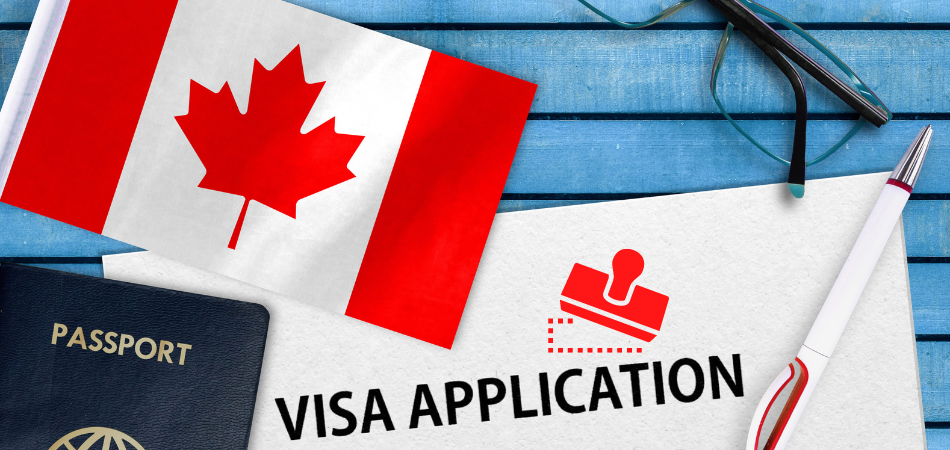
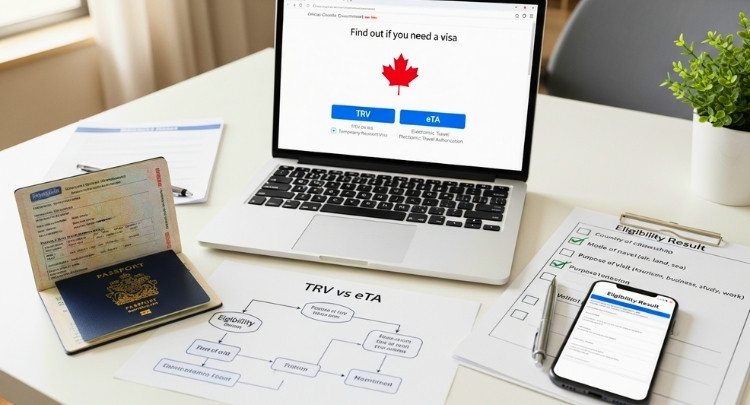
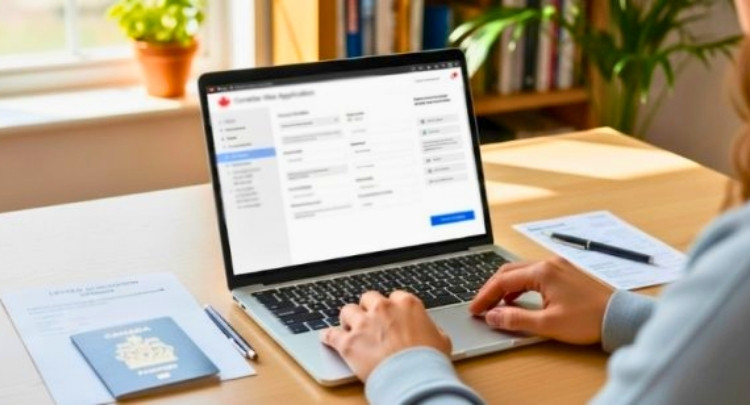
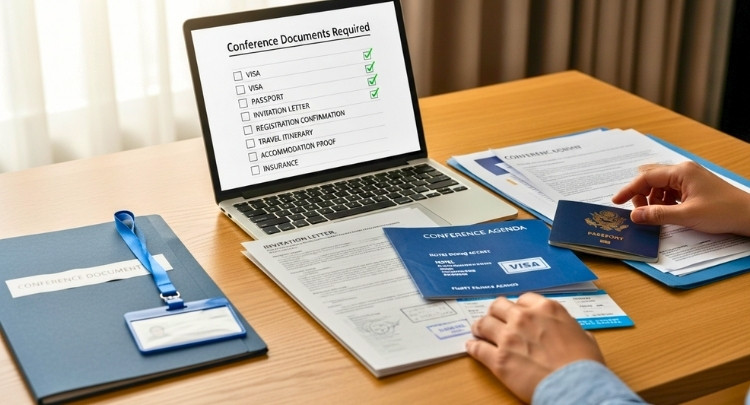

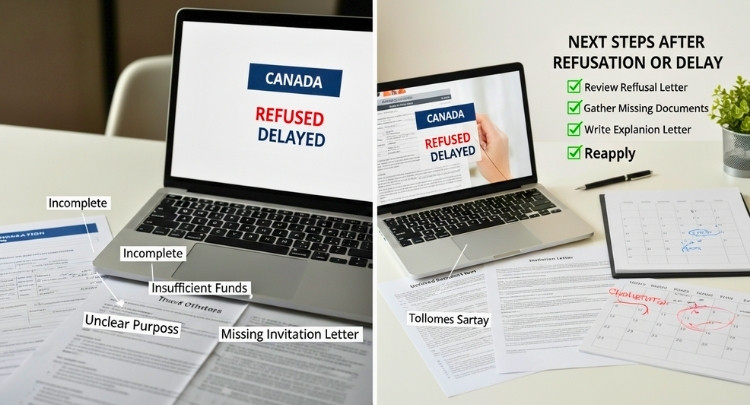



I want to be at the conference
Thank you for your interest, Prince. Please navigate to the “Upcoming Conferences” section from the header or footer menu, select the conference you’d like to attend, and complete your registration there.